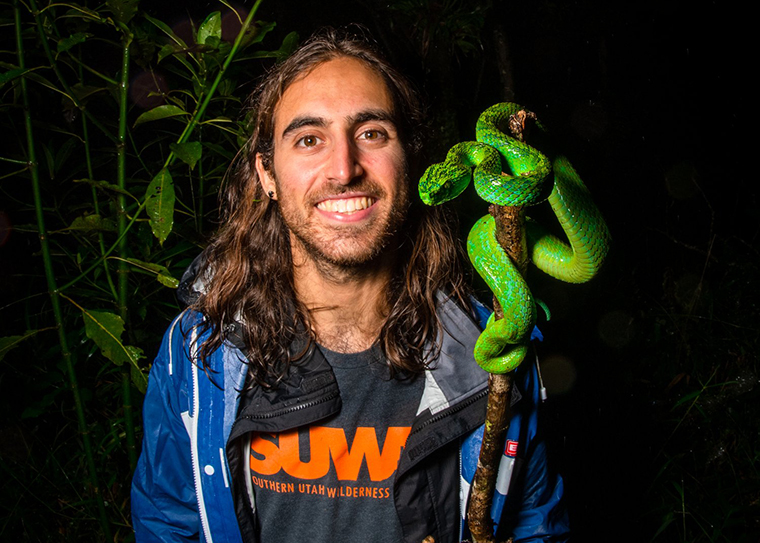
Tasman Ezra, a graduate student in biology in Arts & Sciences at Washington University in St. Louis, first traveled to Honduras with a high school friend who promised to help him find and photograph an endangered jade palm pit viper (Bothriechis thalassinus).
Inspired by what he saw and the people he met, Ezra founded a conservation organization dedicated to conserving reptiles, amphibians and their habitats.
HonduHerp sends experts to primary schools to help young children understand the importance of conserving biodiversity. Members of the organization aim to erode the fear of snakes and reptiles, which is common in communities across the globe. HonduHerp experts also talk with older students and farmers about the differences between venomous and non-venomous snakes.
"Unfortunately, people tend to assume every snake species is venomous or confuse harmless species with venomous ones," said Ezra, an evolutionary biologist who will join the laboratory of Jonathan Losos, the William H. Danforth Distinguished University Professor in Arts & Sciences. "People are often bitten by venomous snakes because they're trying to kill them, when the best thing they can do is avoid them altogether.
"We communicate this and educate people on snake characteristics, which also executes our mission of conserving these reptiles and amphibians," he said. "There are local myths about salamanders being venomous, when, in reality, all salamanders are harmless."
In addition to this community engagement work, experts with HonduHerp are conducting research and helping to monitor reptiles and amphibians in the cloud forests of western Honduras. They are also working to protect land that may be important for the survival of endangered species. Since 2023, the organization has established a network of three reserves in western Honduras.
"The key to our success is that all of the right people happened to come together organically, bringing different talents, capabilities and resources to the table. Officials in high-ranking government positions, local hunters and farmers, educators, hobbyists and scientists all have a common goal uniting them: habitat conservation," Ezra said.
"I've worked on conservation in the United States, and there's a lot more doom and gloom around it," he said. "Down in Honduras, you can feel the enthusiasm, collaboration and support for this work. The focus is more on the success stories and positive impact that people can have at all levels."






